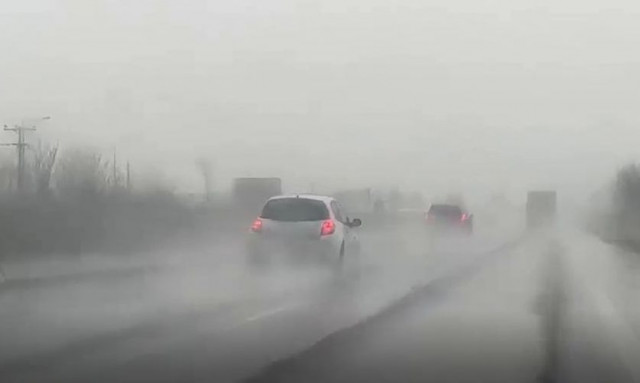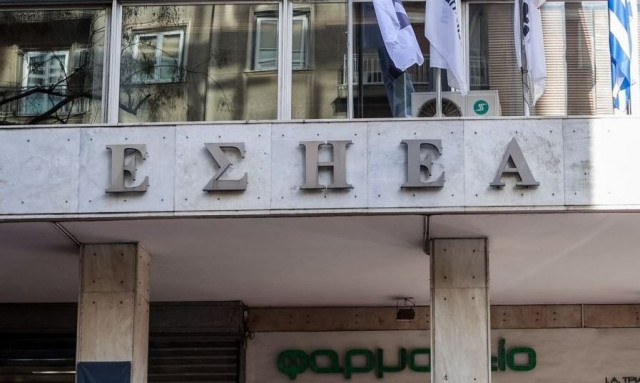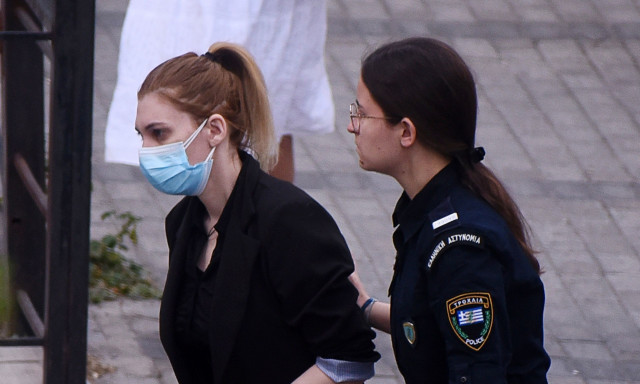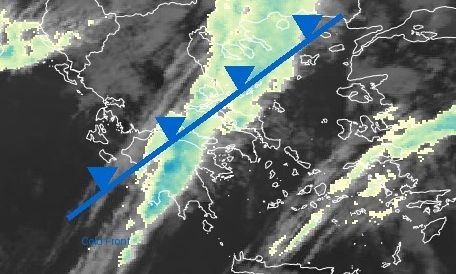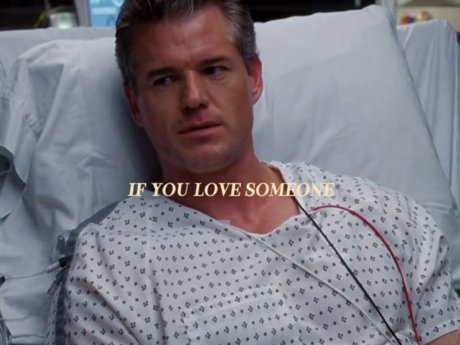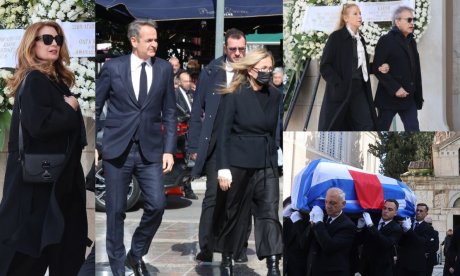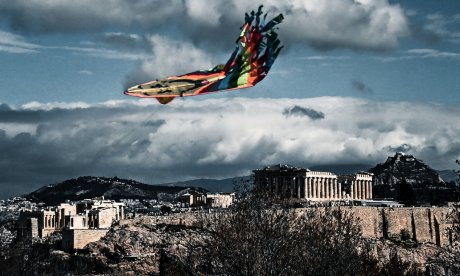Unemployment... kills Perama and its residents
Just 10 kilometers from the largest port in the country, an area that was once the lifeblood of the country and of the working class, Perama today seems to be an endless burnt landscape. Perama almost ... vanished in the whirlpool of crisis and its inhabitants were the first experienced the symptoms of a country which is in the "intensive" care.

HUMAN DRAMA STORIES
Just 10 kilometers from the largest port in the country, an area that was once the lifeblood of the country and of the working class, Perama today seems to be an endless burnt landscape. Perama almost ... vanished in the whirlpool of crisis and its inhabitants were the first experienced the symptoms of a country which is in the "intensive" care.
By Maria Giachnaki
Unemployment figures are around three times more of the national average and families are forced to live with 200 euros per month, as Perama is experiencing the worst form of crisis.
The situation of the locals, who worked primarily in the shipbuilding Zone, is tragic.
The Zone of Perama was for many decades the industrial part of the "heart" of Greece and the site in which developed techniques and repair activities, famous throughout the Mediterranean.
Today Perama languishes and has been degraded, technically and environmentally. The 25,000 inhabitants of the city are long term unemployed and experiencing economic crisis more, perhaps, than other areas. They speak mainly for humanitarian crisis.
The sunrise from the mountains of Perama and the sunset in the former lively yards today seem depressing for the people, who see their lives destroyed.
In Dimokratias Avenue in Perama, dozens of families who do not have money to pay the bills of electricity, nor to buy some bread, are daily visiting the church of St. George.
"In difficult times we think of the church", whispers Mrs. Anna, mother of three children attending elementary and high school.
"My husband had a store with household items, here in Perama, we closed it. We could not pay the IRS and fixed costs. The store could not survive. He searched everywhere for a job but nothing, we became impoverished. Now we collect money for a ticket abroad. He will go to Australia. We will stay here to wait."
In the same parish, daily, homeless, "indebted" to the banks, unemployed and redundant, descend to the basement of the church to receive their share of the lunch.
The priest of the parish of St. George, father Ioannis, the last 20 years provides meals to needy, but now with the crisis needs grew and people multiply.
A group of volunteers helps the work of the parish and cares for the needy by providing food and clothing.
"We are all doleful and distressed by the crisis but the less crummy helps the other," says Mr. Michalis.
"I feel the hungry, what it means to feel dizzy from hunger and falling down, to feel your intestines sticking due to starvation. There is no worse thing than that. Here, come every day families, fathers with lowered head, and mothers with plastic bags in order to get food for the family. Sometimes I do not look them in the eye and other times I try to fill up on their lunchbox, so not to feel hungry."
Ms. Sophia, one of the women volunteers, explains that all food and clothing is from private donations and money that saves the church from memorial services and ceremonies. "Ordinary people usually gave us their offers but now they do not have money to give to us."
The shipyard Zone has now deserted; the dreams of a lifetime have been left there. Even the private shipyard Zone, the problems are large.
"We do not have money to pay electricity any more, or the other bills," says Mr. Athitakis, owner of a shipyard.
"I have the shipyard almost for 20 years. With the beginning of the crisis, we were finished, we died. The job was decreased 90% and then nothing. All we do is pull a boat out of the sea, just for a dish of meal. Here, used to work 500 people, we provided food to 500 families, now only three people are working in the shipyard, as you see. They shout only for the public officials who suffered salary cuts. Here, we were making money, we supported the commercial market and now they make cuts in our lives. No one is shouting for us, there is no salvation. They send the ships in Tuzla, Turkey and where imaginable. I wished to be taken by Cosco, hoping that we could get something; not a great profit but still we could get something. Now there is complete disaster."
In one of the popular markets of Perama, near to St Nicholas, which was once over crowded, now you do not dare to go to shop, although prices are low.
"When we do not have money, we do not go to shop. Many times I cannot buy even a tomato", said Mrs. Maria, who is living for years in Perama. She is a pensioner; her children are unemployed and are looking even the smallest wages.
"Perama can be considered a poor area, but in the past people were working. We were working class, but we lived with dignity because we worked. The men brought home a wage. Women used to work in salons. In small shops or big, it does not matter, and when we were working, our children were studying or we created the conditions to open even a workshop. Now, if you take a walk and ask how many of the pedestrians are working, you will see that they are all unemployed. Even the street market diminished. Since people do not shop, what the sellers could do? "
"My children swoon from hunger in school ..."
Chryssa is the young mother of two children in elementary school and her heart beats louder every day, by the fear that her kids will return from school by feeling unwell from the empty stomach.
"Until recently I was ashamed to say that my husband is unemployed and cannot find even a single day's wages; to paint a house, to carry something in port. Even in the harbor they take foreigners. My husband worked in the shipyard area. Now there is nothing. My kids share the pies which I find in the trash. If you do not do, they swoon in school. Until today this happened three times and now I have found a bakery and I take stale products. There is the solution of soup kitchens, but there they are seeing us. You may tell me "what are you thinking", "would you rather die"? No, but our dignity is the only thing left."
Perama is not at war, in the literal sense, but shows relative characteristics. As a result of the policies of the coalition government and the troika, the population has reached the limits of the food crisis following the same path that led our fellowmen from third countries of the world.
"There are no vaccines for children»
In early 2010 the organization "Doctors of the World", took the decision to install a Polyclinic in the area with a focus on providing care primarily to immigrants who were uninsured: Since then, however, the life course had showed other things.
Mrs. Miles, a pediatrician and president of the organization, says that "90% of people who visit the Polyclinic of Perama is Greek. They are people who have lost their jobs and their insurance coverage, which means that for everything they need from the medical field they have to pay. The Polyclinic has volunteers from 20 medical specialties. We operate with the programs of the European Union but also with private donations. Right now, the biggest problem is that there is a gap in vaccination of young children and this is a great risk to public health.
Shocking is also the fact that there are now many psychiatric cases due to the crisis, but also phenomena of abuse and neglect of young children. This is not happening only in Perama, is a general phenomenon. Unfortunately, poverty creates brutality of parents towards their children."
However even these families whose members are long years unemployed, with no insurance and they need assistance from organizations, institutions and solidarity groups, are not in the worst fate in Perama.
Homeless in the verge of destitution
There is always one step lower, not at the level of dignity, but poverty. We are talking about the homeless of the crisis. The story of a family, which lived in a bench, is shocking, as tells us a young student, Eva, who along with her friends every day comes here from another area in Athens to offer bags with food and shopping in families who have needs.
"I had never come to this area. I live somewhere very different from here, no matter though. One morning a friend who makes her practice in the Children's hospital saw a family which was constantly taking the child to the hospital with health problems due to starvation. She learned their names, and along with them we found here and other incidents, which need our help."
When there are unemployed people who have from 2 to 4 years to work, people who do not have money to pay the electricity bill, the water or telephone, you do not have money to buy a bus ticket to go and look for job outside Perama, then the situation is more than tragic.
In schools students continue to swoon. Teachers know the situation and they ensure the needs of these students, discreetly.
Mothers 'run' in secret in soup kitchens; fathers walking for hours, knocking on doors to find work. Students drop out of school. Students stop studying or never go to register. And all eyes inevitably wander to the sea, where the shipyards rot after the many years that gave them bread and today are drowned in the silence, along with the cool drops of the sea which are falling in the rusted scrap.
Some parts of the Shipbuilding Zone, have become homes of homeless former workers. Their families have at least a corner to live.
"This is a tragic irony ...," says NP, former worker in the shipyards, with a bowed head, "but facts are facts and we are not talking about them, to get some sympathy. Everything were left out of our hands. I will not forget the period of major problems in the shipyard Zone, when we lost our job 4,500 people from all disciplines. You know what that means? Think a small area with this proportion of citizens to stays on the road.
We became queues at soup kitchens and wretches of Greece. We are hungrier than anyone and earlier than anyone without having room to breathe. Do you know how many people from us are currently supported by psychologists and psychiatrists? Men, who could crash a stone with their bare hands in the shipyards, are now crying like babies ... ''
Every day in the high buildings and hovels of Perama, even in the new houses in the area, there are stories of people who hide behind closed doors.
Prolonged unemployment has changed the data of a society with different levels of dreams, all of which eventually had the same fate.
This is only a part of the "success" of the government of Samaras and of the former governments, since in Perama, in the "golden" years of prosperity, was played the biggest "game" against the Greek State and against of the people, who gave their lives in the holds of ships...
Διαβάστε επίσης


